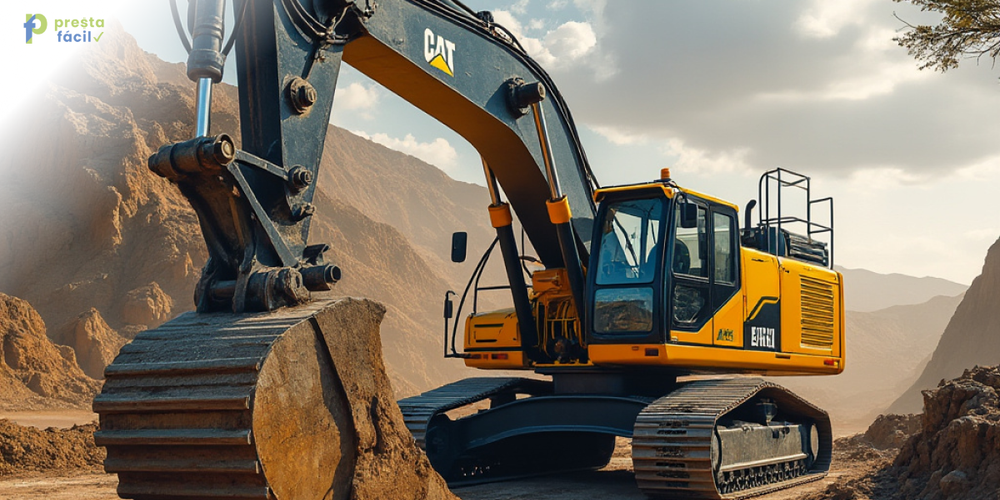Heavy equipment plays a critical role in the construction industry, serving as the backbone for large-scale projects that require significant force, precision, and efficiency. Whether you're a business owner or a worker planning to acquire heavy machinery, understanding the different types of equipment, their accessories, and essential maintenance parts is vital for making informed decisions that can impact your project's success. Additionally, obtaining the proper certifications and training is crucial for operating these powerful machines safely and effectively, especially in Texas, where state-specific regulations and standards apply. This guide delves into the key aspects of heavy equipment, offering insights into various types of machinery, their functions, and how to optimize their use with the right accessories and parts. By the end of this guide, you'll not only have a comprehensive understanding of heavy equipment but also know the necessary steps to obtain the certifications required in Texas to operate them, ensuring both safety and compliance on your construction sites.
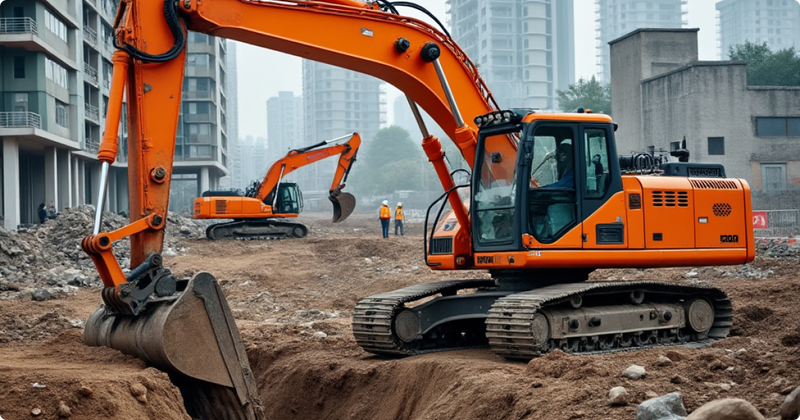
Types of Heavy Equipment
In the world of construction, selecting the right heavy equipment is crucial for completing tasks efficiently and safely. Each type of machinery serves a unique purpose, and understanding their differences can help you make informed decisions for your project.
Excavators
Excavators are versatile machines known for their powerful digging capabilities. They are commonly used for tasks such as excavation, demolition, material handling, and trenching. Excavators come in various sizes, from compact models suitable for small-scale tasks to large machines designed for major construction projects. The key features of an excavator include its long arm, bucket, and rotating cab, allowing for a wide range of movements and applications.
Comparison: Compared to bulldozers, excavators offer greater flexibility in confined spaces due to their ability to rotate 360 degrees, making them ideal for urban construction sites.
Bulldozers
Bulldozers are essential for earthmoving tasks, providing unmatched power and durability. Equipped with a large, flat blade at the front, bulldozers are designed to push large quantities of soil, sand, rubble, and other materials. They are particularly useful in grading, leveling, and clearing land for construction. Bulldozers are also equipped with tracks, which distribute their weight evenly, allowing them to operate on soft or uneven terrain without sinking.
Comparison: While excavators excel in digging and trenching, bulldozers are more effective in pushing and leveling large areas of land, making them indispensable for site preparation.
Articulated Dump Trucks
Articulated dump trucks are crucial for transporting heavy loads across rough terrains. Their articulated steering and all-wheel drive make them highly maneuverable, even on challenging surfaces. These trucks are commonly used in mining, quarrying, and large construction projects where transporting materials over long distances is necessary. Their unique design, which includes a pivoting joint between the cab and the dump box, allows for greater flexibility and stability.
Comparison: Unlike traditional dump trucks, articulated dump trucks can handle rougher terrains and tighter turns, making them a preferred choice for off-road construction tasks.
Skid-Steer Loaders
Skid-steer loaders are compact, versatile machines that excel in a variety of construction tasks. Their small size and maneuverability make them ideal for work in tight spaces. Skid-steer loaders are equipped with a variety of attachments, such as buckets, augers, and trenchers, allowing them to perform tasks ranging from digging and lifting to drilling and grading. Their unique steering system, which allows the wheels on each side to operate independently, gives them exceptional maneuverability.
Comparison: Compared to larger loaders, skid-steer loaders are more agile and adaptable to different tasks, particularly in confined or urban work environments.
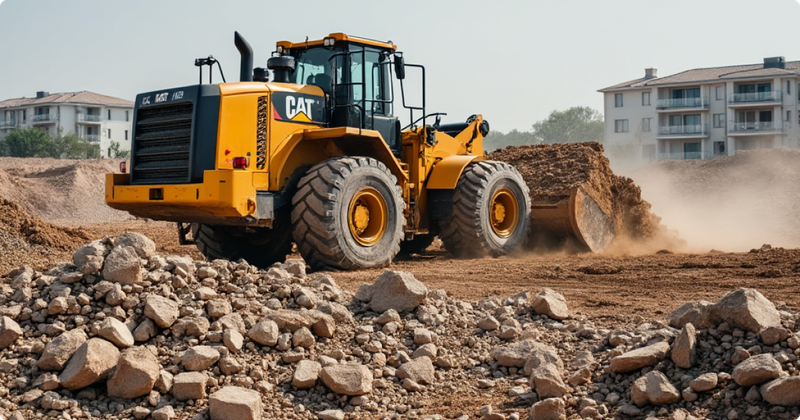
Heavy Equipment Accessories
Accessories play a crucial role in enhancing the functionality and efficiency of heavy equipment. By choosing the right accessories, you can tailor your machinery to suit specific tasks, making them more versatile and effective on the job site. In this section, we'll explore the most essential accessories for different types of heavy equipment and provide insights on how to choose the best options for your needs.
Excavator Accessories
Excavators are known for their versatility, and the wide range of available accessories further expands their capabilities. Here are some key excavator accessories:
- Buckets: Available in various sizes and shapes, buckets are the most common accessory for excavators. They are used for digging, trenching, and moving materials. Choosing the right bucket depends on the type of material you're working with and the specific task at hand.
- Hydraulic Hammers: These powerful tools are used for breaking up concrete, rocks, and other tough materials. Hydraulic hammers are essential for demolition work, making them a must-have for many construction projects.
- Grapples: Ideal for handling large, unwieldy materials such as logs, scrap metal, and debris, grapples add significant utility to an excavator. They are commonly used in forestry, recycling, and waste management.
- Augers: Used for drilling holes in the ground, augers are perfect for tasks such as planting trees, installing fences, and setting up foundations. They come in various sizes to accommodate different types of soil and ground conditions.
Finding the Right Accessories in Texas: Numerous suppliers across Texas offer a wide range of excavator accessories. Companies like Texas Contractors Equipment and Romco Equipment Co. provide high-quality accessories tailored to the needs of Texas-based construction projects.
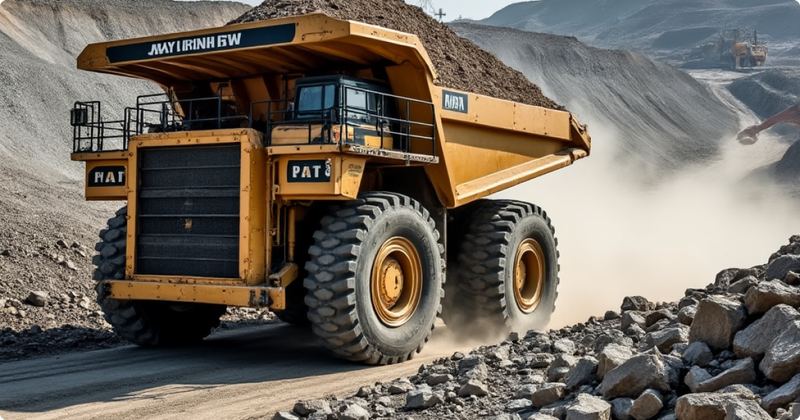
Bulldozer Accessories
Bulldozers are primarily used for pushing and leveling large areas of land, but with the right accessories, their capabilities can be significantly expanded:
- Blades: The blade is the most important part of a bulldozer. Different types of blades, such as straight, universal, and combination blades, are available to suit specific tasks like clearing, grading, and backfilling.
- Rippers: These are large, claw-like devices attached to the rear of the bulldozer. Rippers are used to break up hard soil, rocks, and pavement, making the ground easier to work with.
- Winches: Ideal for towing and pulling tasks, winches can be attached to the rear of a bulldozer. They are particularly useful in forestry operations and other heavy-duty applications.
Finding the Right Accessories in Texas: In Texas, bulldozer accessories are readily available from suppliers like Holt Cat and Mustang Cat, both of which offer a wide range of options to suit various project needs.
Articulated Dump Truck Accessories
Articulated dump trucks are essential for transporting heavy loads, and the right accessories can help maximize their efficiency:
- Tailgates: Tailgates help control the flow of materials when dumping, making the process more precise and reducing spillage. This accessory is especially useful in mining and quarrying operations.
- Bed Liners: Bed liners protect the truck’s bed from wear and tear, extending its lifespan and making it easier to clean. They are particularly beneficial when transporting abrasive materials.
Finding the Right Accessories in Texas: Suppliers like Kirby-Smith Machinery and RDO Equipment Co. offer a variety of accessories for articulated dump trucks, ensuring that you can find the right tools for your specific needs.
Skid-Steer Loader Accessories
Skid-steer loaders are highly adaptable machines, and their versatility is largely due to the wide range of available attachments:
- Augers: Just like with excavators, augers for skid-steer loaders are used for drilling holes. They are smaller and more maneuverable, making them ideal for tight spaces.
- Trenchers: Trenchers are used to dig trenches for laying pipes, cables, and other utilities. They are particularly useful in urban construction projects where space is limited.
- Pallet Forks: Pallet forks turn a skid-steer loader into a compact forklift, allowing you to move pallets and other materials quickly and easily. This accessory is essential for warehouse operations and material handling on construction sites.
Finding the Right Accessories in Texas: Texas-based suppliers like Warren CAT and Texas Skid Steer, Inc. offer a comprehensive range of skid-steer loader accessories, catering to both small and large-scale projects.
Essential Parts for Heavy Equipment Maintenance
Maintaining heavy equipment is crucial for ensuring its longevity, safety, and efficiency. Regular maintenance not only helps prevent costly breakdowns but also maximizes the machine's performance on the job site. In this section, we’ll explore the essential parts that require regular attention and maintenance to keep your heavy equipment in top working condition.
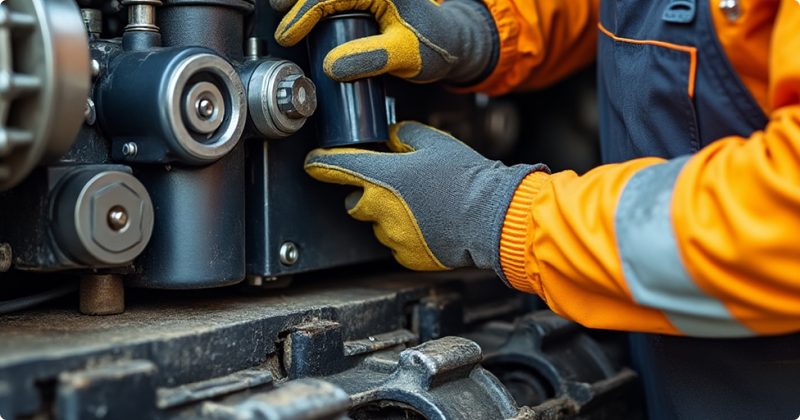
Common Parts for Excavators
Excavators are complex machines with many moving parts, each playing a critical role in its operation. Here are some of the most essential parts that require regular maintenance:
- Tracks: The tracks bear the brunt of the excavator's movement, especially on rough terrain. Regular inspection for wear and tear, proper tension, and lubrication is essential to prevent premature failure.
- Hydraulic Pumps: The hydraulic pump powers the excavator’s arm and other attachments. Ensuring that the hydraulic system is free from leaks and the fluid is clean and at the correct level is key to maintaining optimal performance.
- Filters: Excavators use various filters (fuel, air, hydraulic) that need to be checked and replaced regularly. Clean filters are crucial for preventing contaminants from damaging the engine and hydraulic system.
- Swing Bearings: These bearings support the rotation of the excavator’s cab. Regular greasing and inspection can prevent costly repairs and extend the machine's operational life.
Where to Source Excavator Parts in Texas: Companies like HOLT CAT and Romco Equipment Co. offer a wide range of excavator parts, ensuring that you have access to high-quality components for your maintenance needs.
Crucial Bulldozer Parts
Bulldozers are built to withstand heavy-duty tasks, but regular maintenance of key parts is essential for keeping them running smoothly:
- Undercarriage Components: The undercarriage, including tracks, rollers, and idlers, is subject to extreme wear. Regular inspection and timely replacement of these parts are crucial for maintaining the bulldozer’s stability and traction.
- Engine Parts: The engine is the heart of the bulldozer, and maintaining components like the air filters, fuel filters, and cooling system is vital to prevent overheating and ensure efficient operation.
- Blade: The blade does most of the heavy lifting in bulldozing tasks. Keeping it sharp and free from cracks or dents will help maintain its effectiveness in pushing and leveling materials.
Where to Source Bulldozer Parts in Texas: Texas-based suppliers like Mustang Cat and Warren CAT provide a wide selection of bulldozer parts, offering everything you need to keep your machine in top condition.
Key Parts for Articulated Dump Trucks
Articulated dump trucks are workhorses in transporting heavy materials, and maintaining their key parts ensures reliable performance:
- Transmission: The transmission system is critical for managing the truck's power and speed. Regular checks for fluid levels, leaks, and smooth operation can help avoid costly repairs.
- Tires: Tires on articulated dump trucks are subject to significant wear, especially on rough terrain. Regular inspection for tread depth, pressure, and signs of damage is essential for safety and efficiency.
- Axles: The axles bear the truck’s load and are crucial for stability. Regular greasing and inspection for wear or damage will help maintain the truck's operational integrity.
Where to Source Articulated Dump Truck Parts in Texas: Companies like Kirby-Smith Machinery and RDO Equipment Co. are top choices for sourcing high-quality parts for articulated dump trucks in Texas.
Vital Skid-Steer Loader Parts
Skid-steer loaders are compact but powerful machines, and maintaining their key components is essential for optimal performance:
- Tires: Like articulated dump trucks, skid-steer loader tires endure a lot of stress. Regularly checking for proper inflation, tread wear, and damage can prevent downtime and ensure safety.
- Controls: The controls, including joysticks and foot pedals, must be responsive and accurate. Keeping them clean and regularly calibrated is important for precise operation.
- Hydraulic Systems: The hydraulic system powers many of the skid-steer loader's functions. Ensuring that hoses, seals, and fluids are in good condition will keep the machine running smoothly.
Where to Source Skid-Steer Loader Parts in Texas: For quality skid-steer loader parts in Texas, suppliers like Warren CAT and Texas Skid Steer, Inc. offer a wide range of options to meet your maintenance needs.
Rent to Own Heavy Equipment
For many businesses, the decision to acquire heavy equipment can be challenging due to the significant upfront costs. This is where Rent to Own options come in, offering a flexible and cost-effective solution. With Rent to Own, you can start using the equipment you need immediately while spreading the payments over time. This option not only conserves your capital but also allows you to upgrade to newer models as your needs evolve. For a more detailed exploration of the benefits of Rent to Own, check out our full blog post: Rent to Own Construction Equipment.
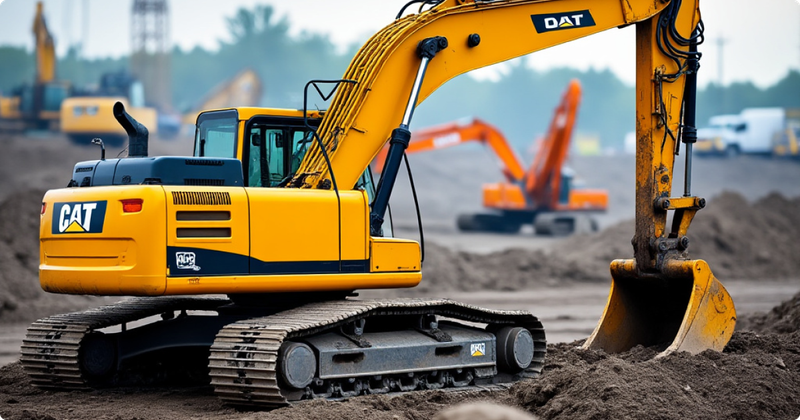
Certifications and Training for Heavy Equipment Operators
Operating heavy equipment is a responsibility that requires not just skill but also proper certification, especially in Texas, where specific regulations apply. Ensuring that operators are well-trained and certified is essential for maintaining safety and compliance on construction sites.
Required Certifications
In Texas, operating heavy equipment typically requires specific certifications depending on the type of machinery. For example, operating cranes may require a Certified Crane Operator (CCO) certification, while other machinery may require a Commercial Driver's License (CDL) with appropriate endorsements. Certification ensures that operators are knowledgeable about safety standards and the correct operation of the equipment. For more information on obtaining these certifications, you can visit resources such as the Occupational Safety and Health Administration (OSHA) and the National Commission for the Certification of Crane Operators (NCCCO).
Training Programs
Proper training is crucial for ensuring that heavy equipment operators are proficient and safe. In Texas, several institutions offer comprehensive training programs, including technical schools, community colleges, and specialized training centers. These programs often cover the operation of various types of heavy equipment, safety protocols, and maintenance practices. Additionally, many programs offer online courses for more flexible learning options. Ensuring that your team is well-trained not only improves efficiency but also reduces the risk of accidents on the job site.
Training Providers in Texas:
- Texas A&M Engineering Extension Service (TEEX)
- Associated Training Services (ATS)
- Local community colleges offering heavy equipment operator courses
Conclusion
Choosing the right heavy equipment, along with the appropriate accessories and parts, is crucial for the success of any construction project. Proper maintenance ensures that your machinery remains in top working condition, minimizing downtime and extending the lifespan of your equipment. Additionally, obtaining the necessary certifications and training is essential for ensuring safety and compliance, particularly in Texas, where specific regulations apply. By following the guidelines in this comprehensive guide, you can make informed decisions that will enhance the efficiency and safety of your operations.
If you're considering acquiring heavy equipment through a Rent to Own scheme, or if you need more information about financing options, don't hesitate to contact Presta Fácil. We're here to help you navigate your options and find the best solution for your business.
